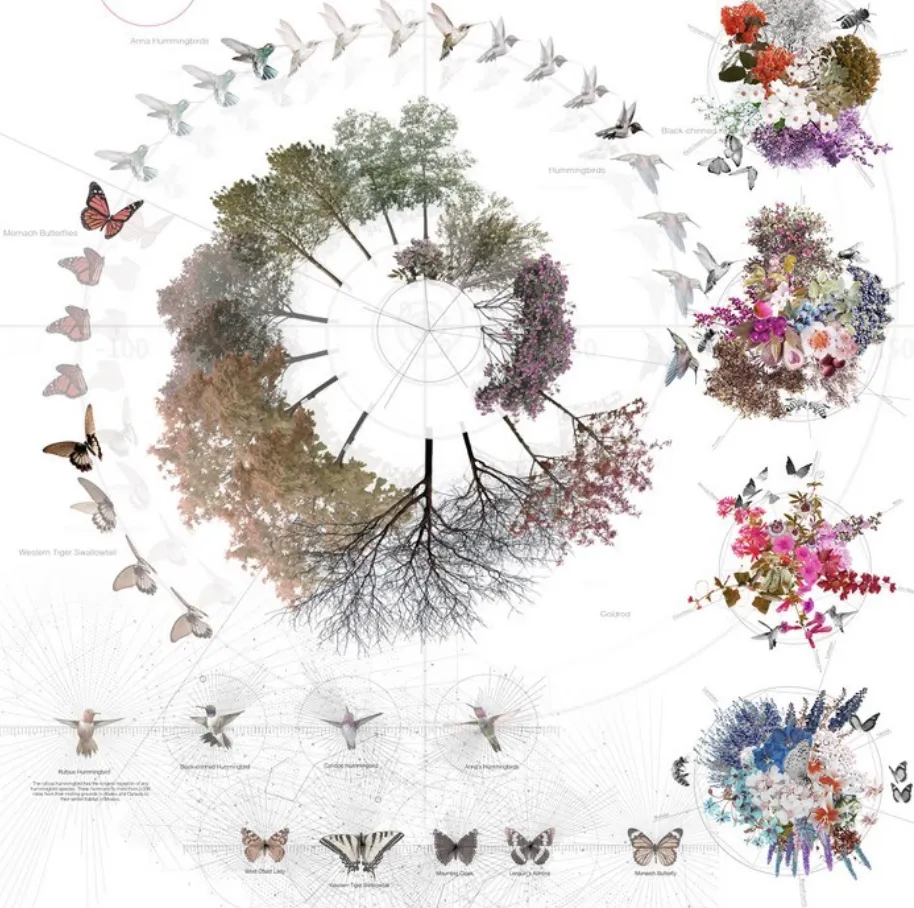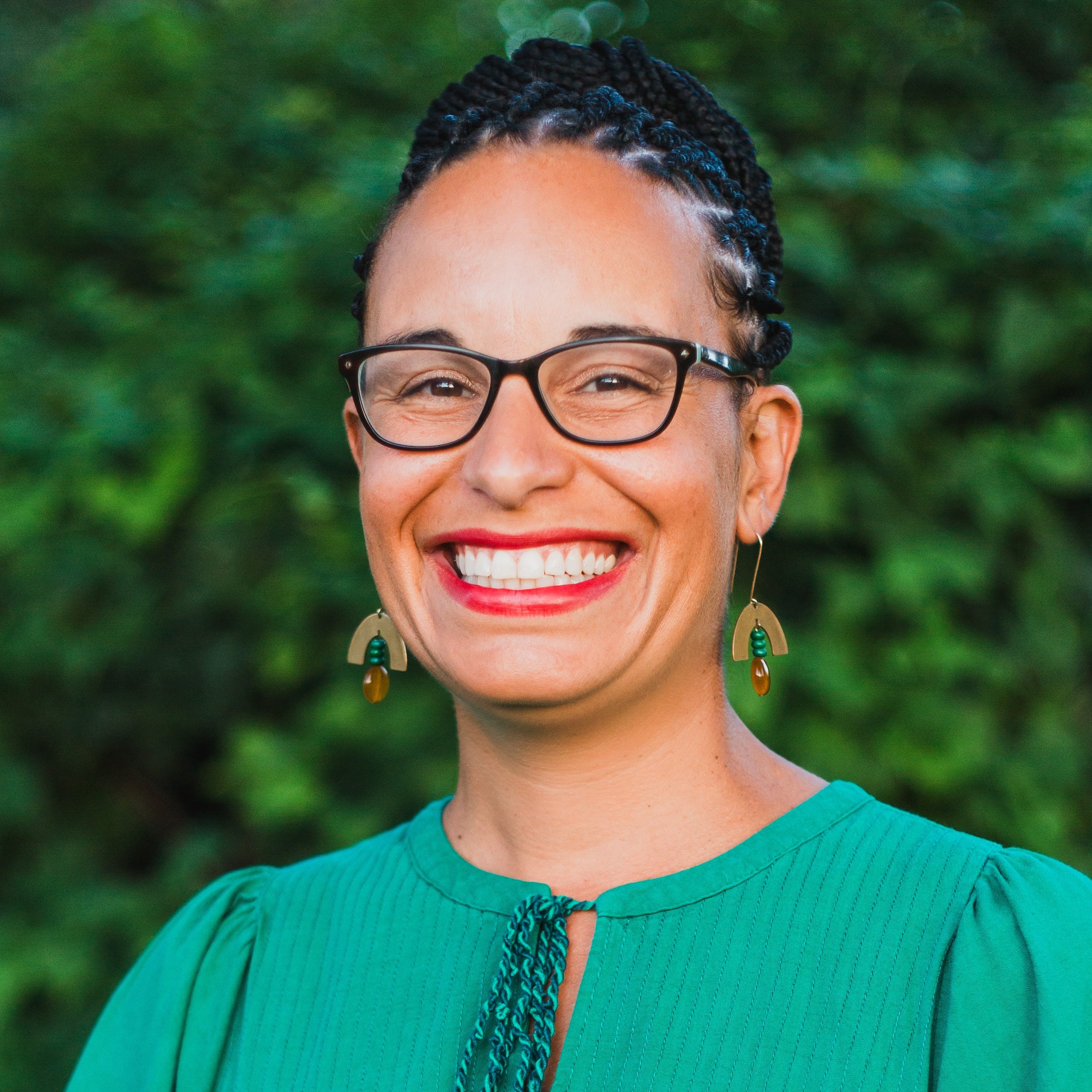by Amber Banks

(This beautiful piece by landscape architect Yuchia Jan (a fellow UW alum) is a concept design exploring networks of pollinators in South Seattle. It is an inspiring snapshot of pollination networks in action.)
Our networks are our greatest assets.
Lately, I’ve been catching up with people from different seasons of my life and career. What strikes me is the mutual care and curiosity in our conversations—whether we’ve known each other for decades or days, there’s shared warmth as we exchange stories and explore points of intersection.
As I work on a new project focused on creating tools for trust-resilient movements, I’m witnessing trust unfurl in real time. In response to my vision, colleagues graciously offer introductions, resource ideas, and ecosystem suggestions—embodying a spirit of generosity that feels grounded in our interdependence. I am so grateful for these gifts and seek to reciprocate and pay it forward whenever possible.
I call this “pollinating trust” or sharing our networks for mutual benefit. Like bees spreading pollen, we seed connections and opportunities through our relationships. Dr. Mark Granovetter calls this the “strength of weak ties” – a phenomenon where it’s not our closest friends who hold the keys to unlock what we seek, but rather it is activating their networks that creates abundance. Some people do this naturally, and others require more intentionality, but it’s a behavior anyone can adopt at some level.
In a time when scarcity and fear are fueling authoritarianism, sharing our collective wisdom is a form of everyday resistance. When we open our networks to trusted comrades, we’re weaving the resilient fabric we need to keep people resourced and supported. We are also seeding trust within our networks, allowing our relationships to pollinate new ones.
A few suggestions to get started:
- Make sure the person you are introducing someone to is open to being connected before you send an intro email/text.
- Be clear about the purpose of the introduction with both parties (“I’d love to introduce the two of you so you can talk about X”).
- If someone charges a fee for advice or consultation, be sure you are willing to pay before you set up a call. It can be helpful to ask in advance if they would like compensation for their time. #nofreelabor
- Prioritize reciprocity. You may be interested in a job or other resource but be sure to ask if there is anything you can do to support a new contact as well.
- Show gratitude and practice integrity. It is no small thing for people to share their networks. Follow up in a timely manner, return the favor, and demonstrate reliability.
- Pay it forward. It is not possible or realistic to respond to every request for introductions, but when it feels feasible, try to make time to take intro calls periodically, particularly if you are part of exclusive networks and/or in a position of privilege.
How are you pollinating trust? Who in your network could benefit from knowing each other?
A big thank you to everyone who has shared their wisdom and expertise as inspiration for this post!

Amber Banks
Dr. Amber Banks is a leader with 20+ years in social change. Her work explores the role of trust in movements for social justice, offering tools for deepening trust through coaching and advising social sector leaders

Network Weaver is dedicated to offering free content to all – in support of equity, justice and transformation for all.
We appreciate your support!



